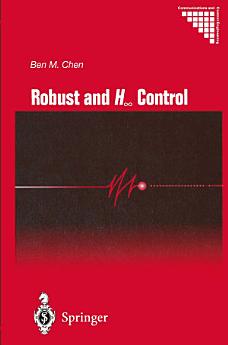Robust and H_ Control
এই ইবুকখনৰ বিষয়ে
Constructive algorithms are provided for finding solutions to:
• general singular H-infinity control problems;
• general H-infinity almost disturbance decoupling problems;
• robust and perfect tracking problems.
Theories are also applied to real-life problems with actual implementations. This book can be used for graduate courses in departments of aeronautics and astronautics, applied mathematics, chemical engineering, electrical engineering and mechanical engineering. It should also be of great value to engineers practising in industry.
লিখকৰ বিষয়ে
Associate Professor Chen's research interests are in linear systems, robust control theory and control applications. He has published 7 monographs. He has served as an Associate Editor of IEEE Transactions on Automatic Control, and Asian Journal of Control. Currently, he is serving as an Associate Editor of Systems and Control Letters, and Control and Intelligent Systems. Before returning to Singapore, Professor Chen worked in the US (New York and Washington State Universites) and in Australia. He lectures on several courses, both undergraduate and graduate.






